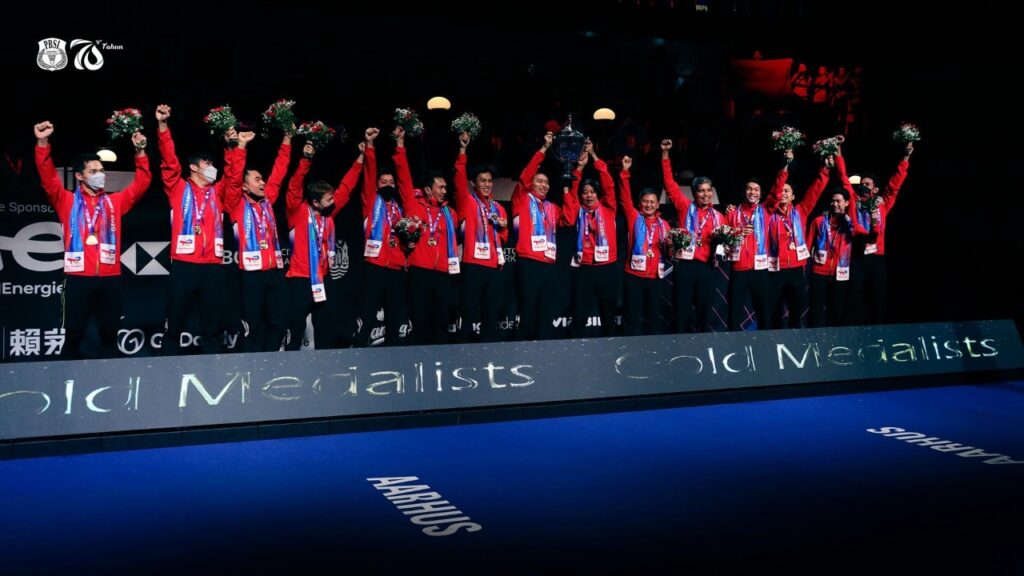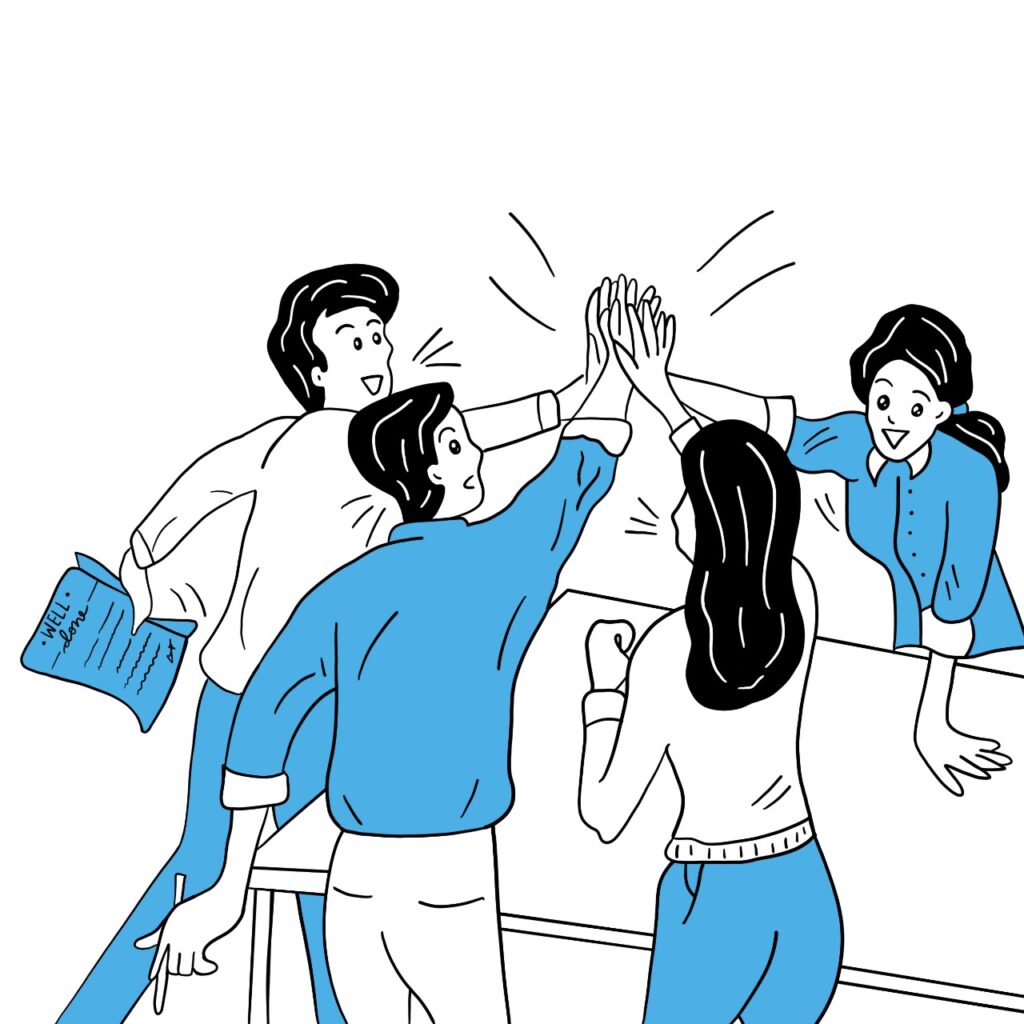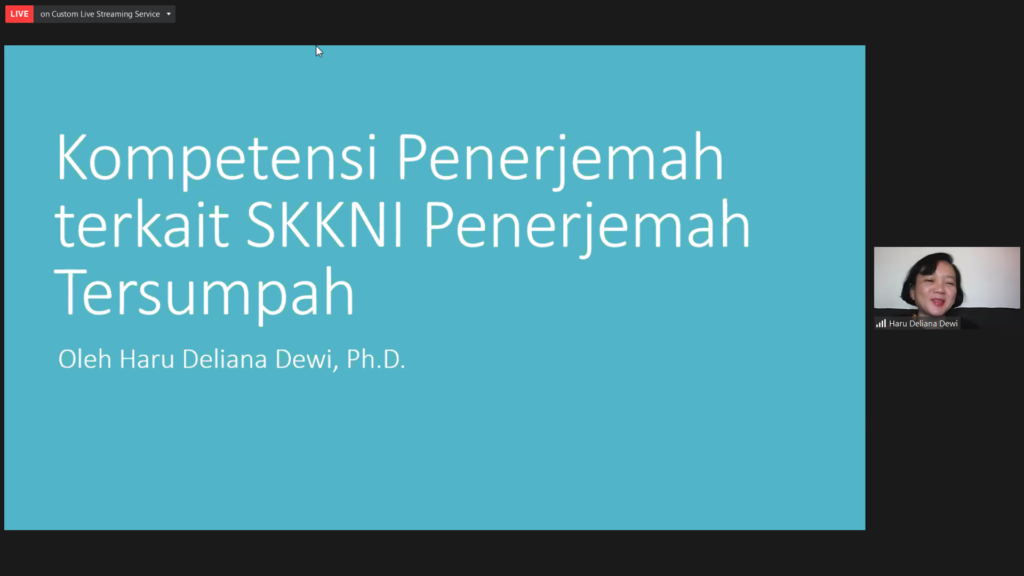
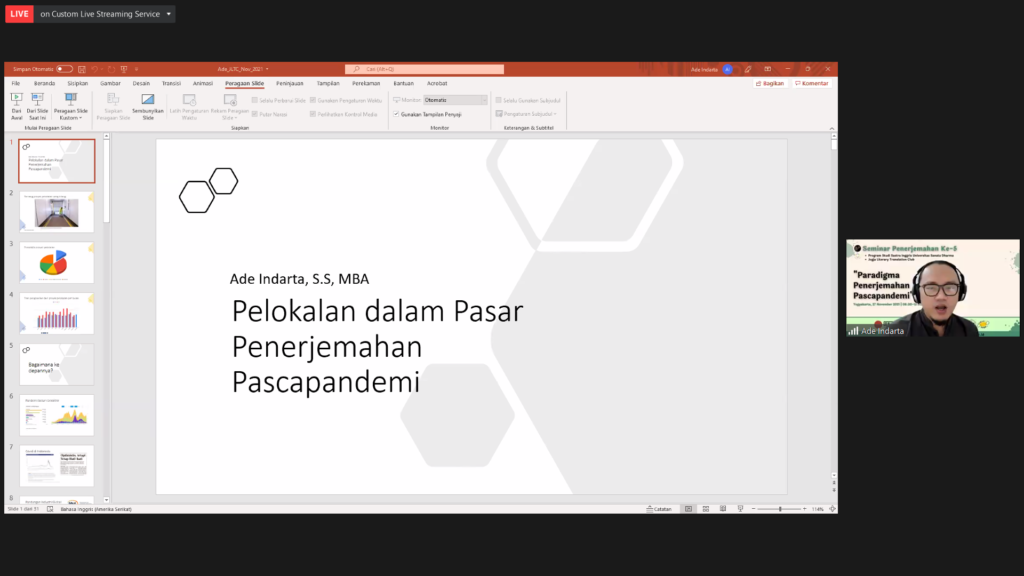
Yogyakarta (27/11/2021) – Jogja Literary Translation Club (JLTC) held their fifth translation seminar with “Paradigma Penerjemahan Pascapandemi” (Post-Pandemic Translation Paradigm) as the main topic, conducted online via Zoom. Head of JLTC Almira Romala and the Head of the English Letters Study Program Hirmawan Wijanarka, M.Hum. opened the seminar with their welcome remarks. This seminar marked the closing of a series of events for the JLTC anniversary, and more than one hundred participants attended the web seminar.
The web seminar was divided into three sessions with a different focus each session. Christien Yueni as the moderator guided the first session where Professor Nababan explained “A Good Practice of Post-pandemic Translation Project”, and the session ran interactively. According to Professor Nababan, translation practices after a pandemic remain the same as before the pandemic; therefore, he focused on explaining the translation project processes.
“A translator is a cultural filter. It is important to have a balanced ideology when it comes to translation, since translation methods and techniques of different ideologies will complement other translation ideologies,” said Professor Nababan when he explained the link between translation ideology and translation quality. The topic sparked some participants to ask questions and dig deeper into the subject. Before the session ended, Professor Nababan added that the translation field in Indonesia is already prominent.
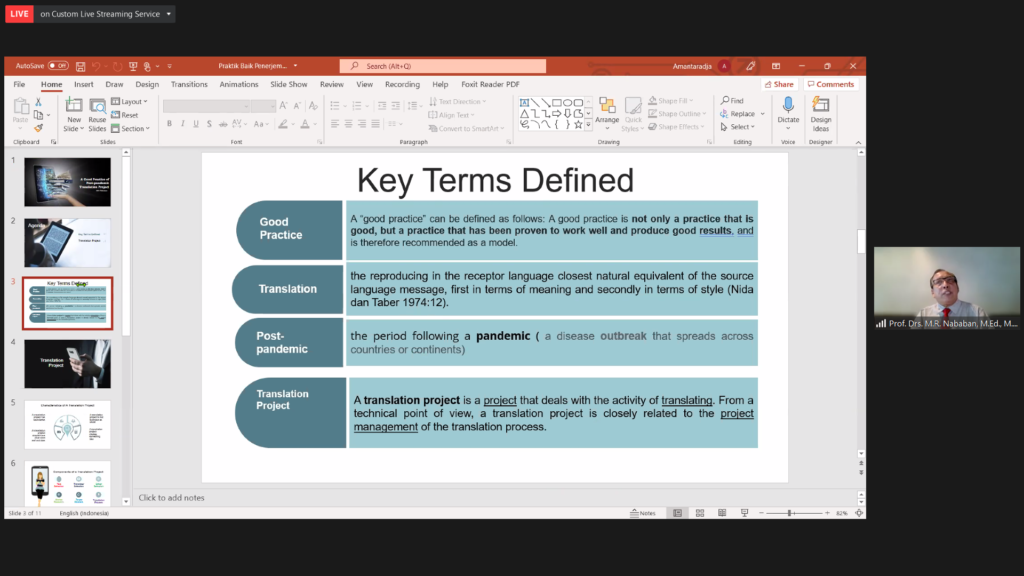
The second session was guided by the head of JLTC, Almira Romala, and the speaker was Haru Deliana Dewi, PhD. The second session focused on translators’ competence if they wanted to take the Ujian Kualifikasi Penerjemah or UKP. In this session, Haru explained various things about texts and the approaches to translate a particular text. Haru said, “a translator should understand the basic theories of translation and know what method they should use, since translating different texts will require different approaches.”
When the Q&A session began, questions were flooding the chat box regarding the qualification test. Haru mentioned that LSP was inactive for eleven years and 2021 is the first year LSP started being active again; that is why the test will be only for English to Indonesian and Indonesian to English translators. Additionally, this test applies nationally and the participants do not necessarily need to graduate from a language department.
Stefani Veronika, the co-founder of JLTC, guided the last session with Ade Indarta as the speaker. Ade Indarta explained about the localization in the post-pandemic translation market. The third session covered which industries were affected by the pandemic and the economic growth within this year. Ade shared his personal experience working as a translator in the midst of the pandemic in this session. He also shared tips with everyone who wanted to be a localization translator. It is important to start step by step and get involved with volunteering activities.
In the Q&A session, Ade explained more about localization in big companies. “Most of the big companies already consider which languages are prioritized to be translated,” Ade said to answer a question regarding working in Netflix. He also added that there could be different views between the client and the translator, so some companies choose to use machine translation to translate unprioritized languages. “It is better to translate it with a machine, despite the inaccuracy, rather than to not translate it at all,” he said. Remarking the end of the third session, Ade added that human translation would not entirely vanish because there are some aspects that machine translations cannot replace.
Before the web seminar ended, Stefani Veronika shared the closing remarks as the co-founder of JLTC. At the end of the web seminar, the MC announced the names of participants who actively asked questions in the Q&A session. The active participants received a gift from the committee.
Journalist: Yohana Satvika
Editor: Baby Lois Augustine Nabasa, Fransiskus Nino Boby Laksono (QC)


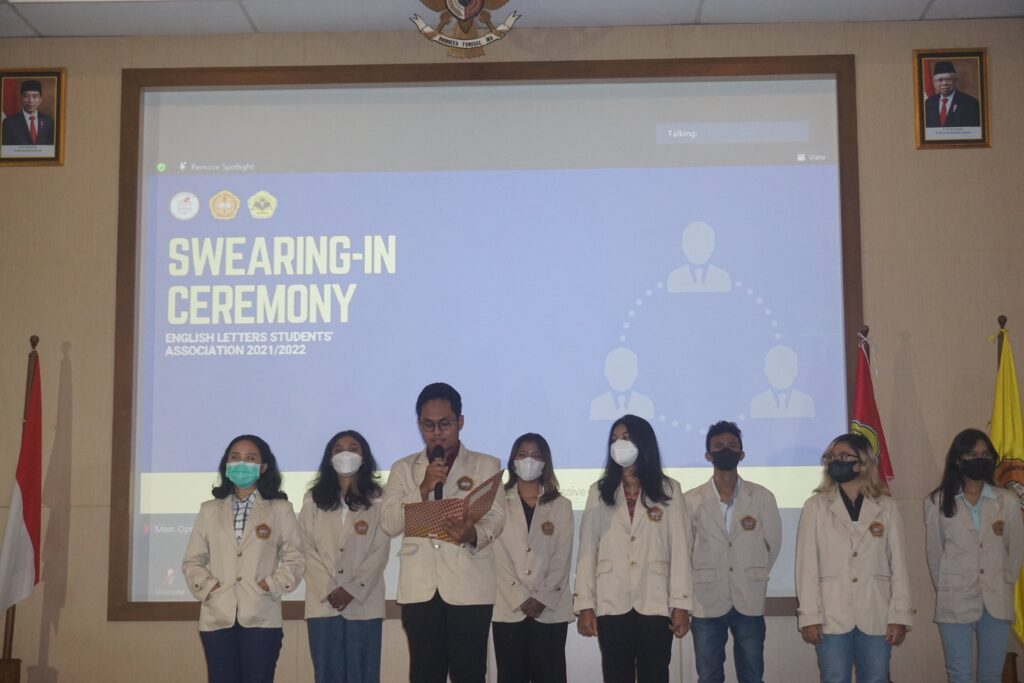
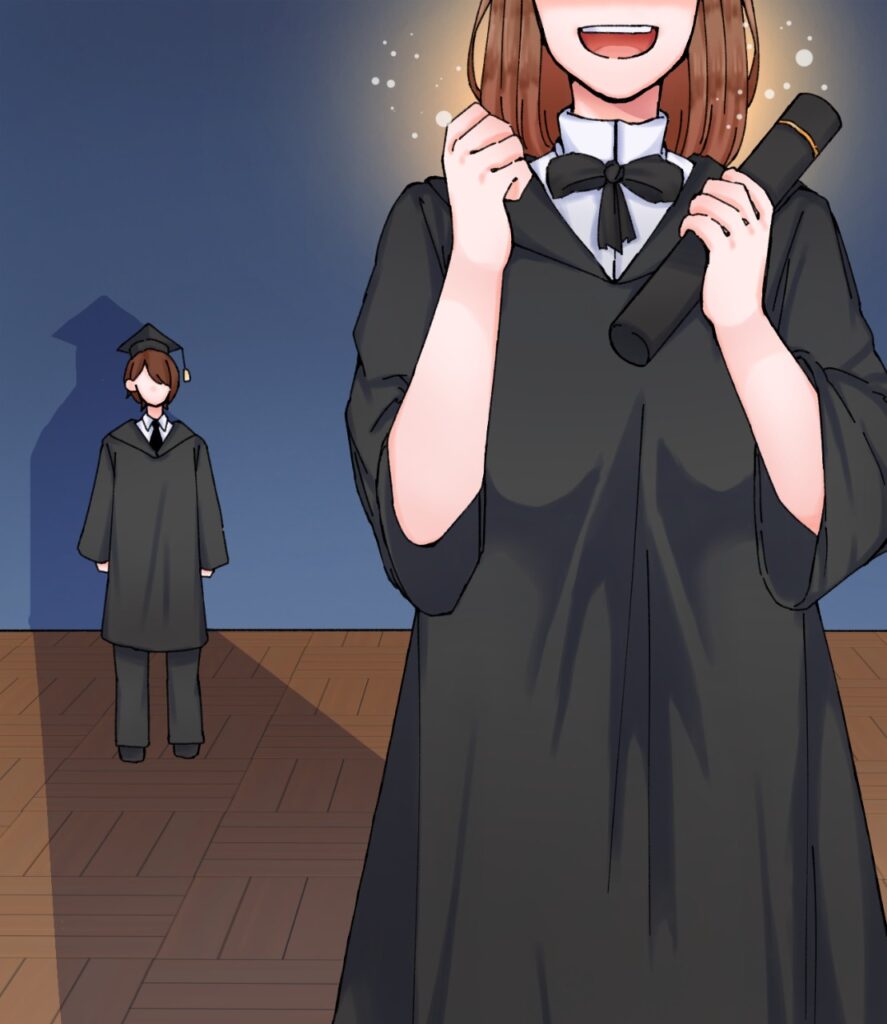

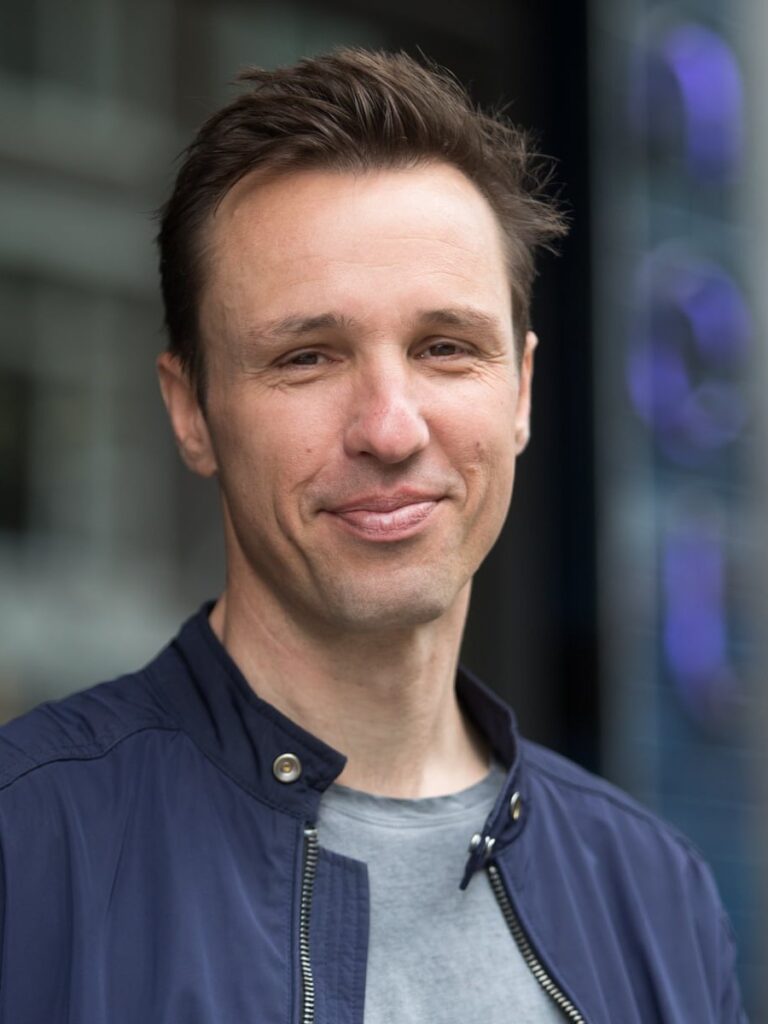 Pic: Markus Zusak by Carly Earl, 2018. The Guardian
Pic: Markus Zusak by Carly Earl, 2018. The Guardian